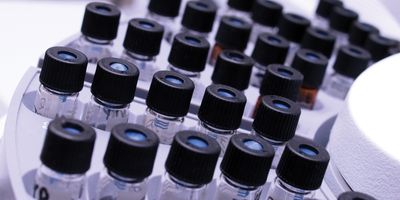The Importance of Calibration and Quality Control in Gas Chromatography
The importance of calibration and quality control in gas chromatography
Precision and accuracy are both critical in the field of analytical chemistry, especially in techniques like gas chromatography (GC). It is through diligent calibration and quality control (QC) that these factors are maintained, serving as the framework for robust systems that safeguard results and adhere to regulatory standards. Due to the sensitive nature of GC, it is vital that researchers subject their GC systems to stringent calibration and QC measures to ensure the precision and accuracy of their work.
The calibration essentials
When it comes to GC, calibration is an important process that aligns the measurements obtained from the GC with known standards, establishing a reliable basis for accurate analysis. This is fundamental because GC is employed across a spectrum of critical applications, from identifying pollutants in environmental monitoring to determining the purity of pharmaceutical products. Without precise calibration, the integrity of these analyses could be compromised, leading to inaccurate data and potentially severe consequences in terms of health, safety, and compliance. Calibration ensures that the GC system can accurately translate sample concentrations into meaningful data points, which is essential for making informed decisions based on the analysis. By ensuring the GC system is properly calibrated, researchers and professionals can trust the data it generates.
Regular recalibration is crucial for accurate gas chromatography analysis. Industry best practices recommend recalibrating equipment every six months or more frequently, depending on usage intensity and analysis complexity. Recalibration should also be performed after significant changes or when accuracy drifts due to wear and tear. Environmental factors, such as significant shifts in temperature or humidity, can also warrant recalibration.
Embracing calibration and QC in gas chromatography is a commitment—a promise to strive for accuracy, dependability, and repeatability.
Quality control: the champion behind the scenes
After calibration—the first critical step in the QC process—the focus shifts to QC, which encompasses a broader set of procedures (such as tracking performance parameters, preventive maintenance, and documentation) designed to maintain and verify the accuracy of the GC system over time. During analytical runs, QC is manifested through the systematic use of control samples alongside the samples being analyzed. Control samples—not to be confused with calibrators—typically mirror the composition of test samples, but with concentrations of analytes that are already known and verified. These controls may be sourced externally or prepared separately from the calibration process, serving as independent validations of the GC system's performance.
It is crucial to understand the difference between calibrators and controls. Calibrators set benchmarks for measurements. Meanwhile, controls act as checkpoints to track progress along the path set by the calibrators.
From concept to reality: overcoming challenges
Calibration and QC in gas chromatography demand precision, awareness, and careful preparation. Awareness involves monitoring for performance shifts, sample behavior variations, regulatory standards updates, and environmental changes. Preparation encompasses selecting and preparing calibration standards, ensuring the GC system is clean, setting operational parameters, and preparing control samples. These steps underscore the interconnected nature of calibration and quality control in maintaining the scientific integrity of GC analysis.
Embracing calibration and QC in gas chromatography is a commitment—a promise to strive for accuracy, dependability, and repeatability. It's about protecting the integrity of scientific research and ensuring the safety and effectiveness of products across industries.

